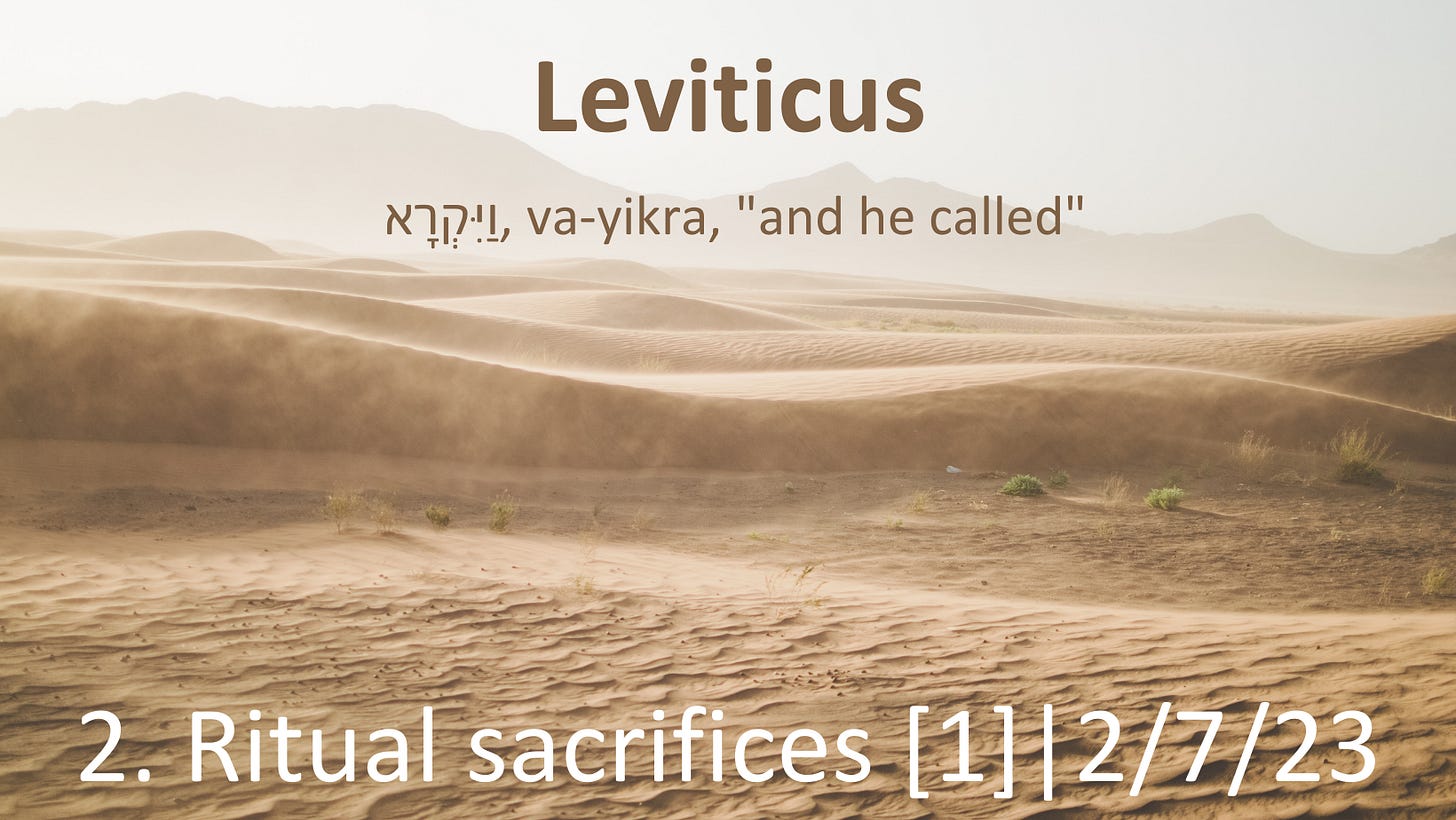Scripture
Preach»
Review
1. Why study Leviticus?
Inspired scripture reveals God as dangerously holy but he desires relationship with humans.
2. What is the structure of Leviticus?
Leviticus is at the centre of the Torah, and the Day of atonement at the centre of Leviticus. Sin needs to be covered if we are to enter the presence of God.
3. What is God’s holiness?
God’s holiness is a “devouring fire”. Holiness, like the Sun is good, but also dangerous.
Questions
The whole burnt offering [Leviticus 1]
1. Did the ritual sacrifices provide food for YHWH [Psalm 50:12-14]? How does this compare to the gods of the nations?
2. What is the “whole burnt offering” [Leviticus 1]? What is the purpose of the offering [v4]? Who laid his hands, or presses down, on the animal [v4]? Where is the blood sprinkled [v5]? How does this begin to shape our understanding of “atonement” or “covering”?
3. Which tabernacle did Jesus sprinkle his blood on [Hebrews 9:21-26]?
4. The Levitical offerings do not cover intentional sin. Intentional sin was not easily dealt and often invoked the death penalty [Romans 3:23]? How then can we approach God without dying [Ephesians 3:11-12]?
The grain offering [Leviticus 2]
5. A hand full of the grain offering was burnt. Who ate most of the grain offering? Why only them?
6. What is symbolism of olive oil, frankincense, salt1, yeast and honey2 symbolise continued to be used even into the NT. What do they symbolise?
The peace (wellbeing) offering [Leviticus 3]
7. Where did the blood go? Why?
Homework
1. What would it have been like for an Israelite to approach God?
2. What did Levitical sacrifices man and NOT mean?
3. A deeper appreciation as we enter God’s presence through Christ.
The other gods
Deuteronomy 32:8-9 teaches that other gods did rule over the nations…
8 When the Most High apportioned the nations,
at his dividing up of the sons of humankind,
he fixed the boundaries of the peoples,
according to the number of the sons of God.
9 For YHWH’s portion was his people,
Jacob the share of his inheritance.
Genesis 11 tells us that YHWH divided the nations. Deuteronomy 32:8 says that he apportioned them, gave them out. To whom? Who are the “number of the sons of God”? The LXX has “number of the angels of God” which is interpretive but indicates how the Jews read this. More generally the existence of other gods is assumed throughout the OT.
Salt was often used to bind covenant ceremonies in the ANE [Numbers 18:19; 2 Chronicles 13:5]. It is a reminder of God’s covenant loyalty [cf Matthew 5:13; Mark 9:50.
Honey may have been associated with sacrifices to other gods. It is excreted from bees, a bodily fluid, so perhaps ritually impure?




